Get the Facts: Very Common Diet Myths
admin / May 22, 2014 / 1 CommentHere’s just a short list of very common diet myths to get you thinking…
Potatoes, bread, pasta and rice are fattening. Avoiding these will make me lose weight.
Bad quality carbohydrates will make you put on weight. By bad, I mean the highly processed types, with loads of added fat, salt, sugar. High fibre carbohydrates, such as brown rice, wholemeal/wholegrain bread, potatoes, wholewheat pasta are essential for your health. The poor old carbohydrate – a staple nutrient for thousands of years. Often, it is what we add to the carbs which make it the culprit, such as fried potatoes for chips, or creamy sauces with pasta. Ultimately, it is an excess of calories that will make you gain weight, not only the source of the calories. Take for instance the most avoided source of carbohydrate – potato. Potatoes do have a high GI, but to put this into perspective, GI alone does not indicate nutritional quality (i.e. ice-cream is low GI). Potatoes are packed with B group vitamins and fibre, and a single potato contains just 20g of carbohydrates – this is less than ½ a cup of rice or pasta!
Don’t be fooled by the label: “Fat-free, sugar-free, and all-natural” labels
This sounds healthier. And if you choose foods with these labels hoping that they are the healthier option, I don’t blame you. There are 2 issues with these labels: they either fail to mention what each of these ingredients is replaced with, or they use the food industry use these terms mostly as a marketing strategy.
1. Sugar-fat seesaw: How to do they manage to keep the flavor that keeps us going back for more? They use a tasty alternative option. ‘Low fat’ foods are often higher in sugar (take muesli bars and fruit yoghurt), or low sugar foods are high in fat (low sugar chocolate anyone?). We need to read the nutrition information panel to make informed decisions, and as a quick tip, ingredients are listed in the order from most to least. So if you decide to eat a low fat fruit yoghurt, and sugar is listed before fruit, consider a different option.
2. Marketing: lollies are made from sugar, so why say low fat is fat was never an ingredient anyway? And ‘all-natural’ might be made from natural ingredients, but can sometimes still include large amounts of sugar, fat, and additives. Again, read the label.
Fruit contains fructose so should be avoided.
Fructose, i.e. fruit sugar, is NOT toxic. Many anti-sugar campaigns put all sources of sugar in the same basket- this is not a reliable approach. One of the richest sources of fructose in the diet is fresh fruit. Decades of research and centuries of consumption indicate that a couple of pieces of fruit per day will do no harm whatsoever. And fruit contains plenty of fibre and key nutrients, a superfood you could not afford to remove from the diet.
Coffee and tea are dehydrating.
FALSE. These are the most popular beverages consumed around the world. Yes, caffeine is dehydrating, but as long as you don’t overdo the number of cups of coffee or tea you drink per day (sticking to less than 3 cups per day, or less than 500mg caffeine), the amount of water you will drink from these will ultimately leave you more hydrated. Decaffeinated is a good alternative if you are worried about the number of cups you are drinking.
Skipping breakfast helps you lose weight
FALSE. You need to break the 8-12 hour fast during the night. Your body needs more fuel to keep it working at its optimum. Putting off breakfast for a few hours, or skipping breakfast altogether, slows down your metabolic rate and may ultimately lead to long-term weight gain. Recent research supports eating breakfast as a must, showing that people lost twice as much body fat when they consumed half their daily calories at breakfast (a wholesome breakfast). People are also more likely to make healthier decisions and snack less impulsively during the day. Try wholegrain cereals or muesli with fruit and milk/yoghurt, or wholegrain/wholemeal toast with eggs, reduced fat cheese, or baked beans.
Eggs are bad for you, especially if you already have high cholesterol or diabetes
Eggs do contain cholesterol in the yolks – 211mg per 60g egg (a large egg). And cholesterol is the substance that build up in your arteries and can increase your risk of heart disease. BUT, the Heart Foundation recommends the consumption of up to 6 eggs per week to be included as part of a healthy balanced diet that is low in saturated fat, without adversely affecting cardiovascular disease outcomes. The cholesterol in eggs does not have a huge impact on raising blood cholesterol, as the body compensates by producing less of its own. 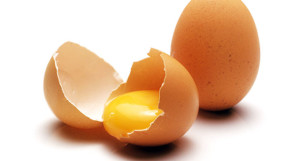
What does increase your blood cholesterol levels more than dietary cholesterol and increases the risk of heart disease are saturated fats and trans fats which are found in foods such as commercial sweets, butter, deep fried takeaway, processed meats and coconut and palm oil. Eggs contribute a tiny 1.5g saturated fat and zero trans fats to the diet, making them an excellent snack or addition to a main meal. They carry the Heart Foundation tick.
Myths continue to appear daily and this list can turn into a book. To get the facts, you need to speak to an Accredited Practising Dietitian.
Don’t forgot to sign up for our newsletter at the bottom of this page for the latest news in nutrition delivered free directly to your inbox.
Do you have a myth you want busted? Get the Facts: Very Common Diet Myths. Leave a comment below.
web sex livecam
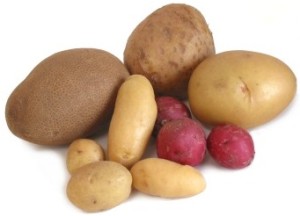


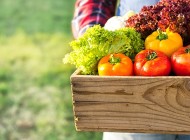
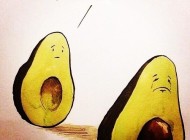
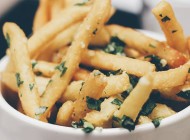
Hi! This post couldn’t be written any better! Reading this
post reminds me of my good old room mate! He always kept chatting about this.
I will forward this write-up to him. Pretty sure he will
have a good read. Thank you for sharing!